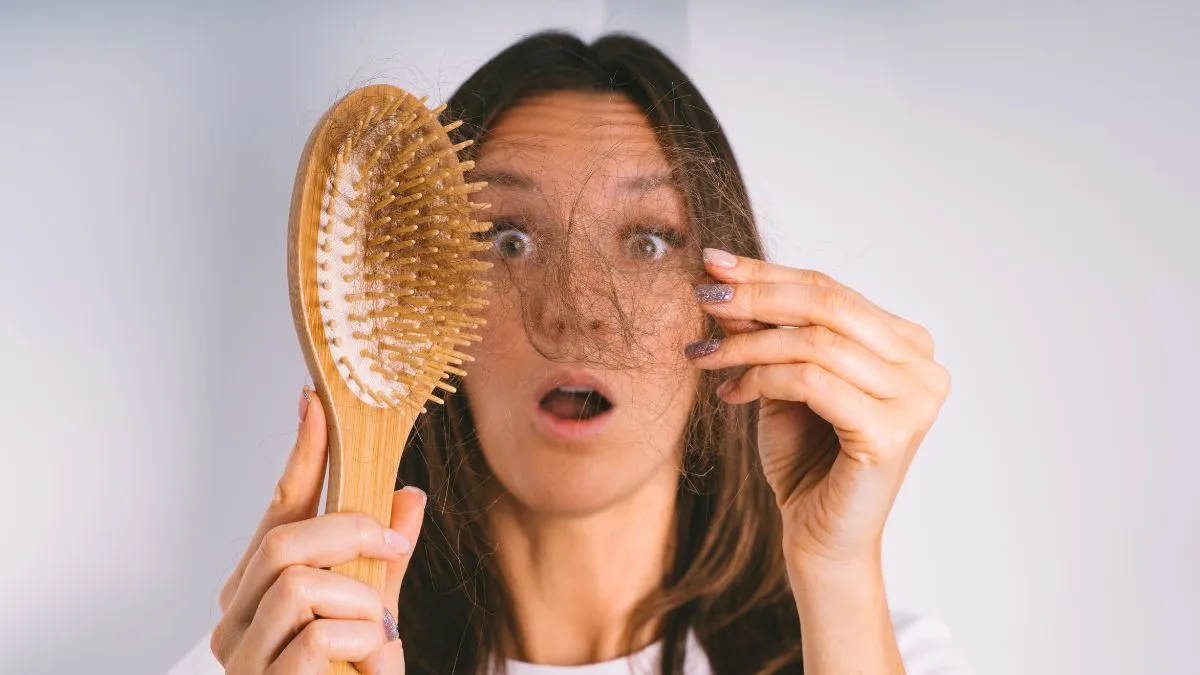- By Prerna Targhotra
- Fri, 06 Dec 2024 04:43 PM (IST)
- Source:JND
Winter Hair Fall: Winter, with its cold winds and low humidity, comes associated with a marked increase in hair fall. This is something that most people go through during this season, thus giving rise to many apprehensions about hair health. Knowing why hair falls off in winter and how to address it will keep you going through the season without breaking your locks.
Why do people experience increased hair fall in winters?
According to Dr BL Jangid, Dermatologist, Hair Transplant Surgeon and Founder of SkinQure Clinic, New Delhi Saket, ‘Winter acts more as a friend to hair health. Dryer air and indoor heating suck the moisture right out of it, leaving the scalp drier and flakier from the lack of moisture in the scalp. This undermines hair follicles, whereby the strands fall out; it also reduces Vitamin D production, which is quite essential for hair growth; this is because the greatest influences on the hair growth cycle are during winter. Taken altogether, these can clearly contribute to noticeable hair thinning in colder climates’.
How to Avoid Winter Hair Fall
1. Hydrate Your Hair: Use a moisturizing shampoo and conditioner that fights dryness. Once or twice a week you can do oil massage, using coconut, argon, or almond oil. It will help in moisturizing the scalp and improve blood circulation but don’t keep oil in your hair overnight, 2-3 hours before hair wash is advisable.
2. Avoid Hot Showers: Hot water can strip your scalp of natural oils, further making it dry which may lead to hair fall. Try to avoid hot water and make it a point to use lukewarm water while washing hair to keep the hair naturally moisturised.
3. Eating a Balanced Diet: It would help with hair health internally by incorporating lots of vitamins and minerals into your diet, mainly Vitamin D, biotin, and iron. The addition of foods such as eggs, nuts, spinach, and oily fish will be a plus in the meals.
4. Protect Your Hair from the Elements: When you go out, take a scarf or hat to completely cover your head from cold winds. Wear silk or satin-lined caps, as those will minimize friction and avoid hair breakages and hair fall.
5. Hydrate and Humidify: Stay well-hydrated by drinking plenty of water. You might even consider placing a whole-house humidifier at home to increase moisture in both the air and skin/scalp.
When to Get Professional Help
If the hair fall is more than regular or persistent, seek professional advice from a dermatologist or hair specialist. They can detect whether underlying disorders like hormonal imbalance, nutritional deficiencies or any medical conditions exist and will recommend personalized treatment that can be helpful. You can minimize the seasonal hair fall by taking proactive steps and maintaining a consistent hair care routine.
